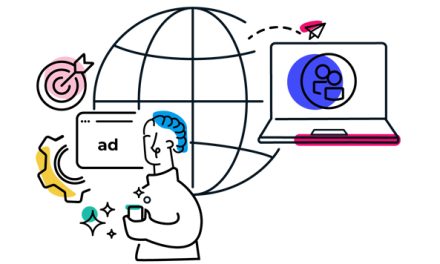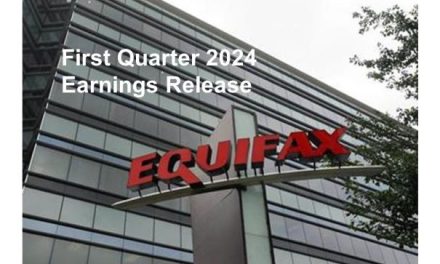On the occasion of the 43rd anniversary of the re-establishment of the National Bank of Cambodia, Mr Oeur Sothearoath, Chief Executive Officer of Credit Bureau Cambodia (CBC) spoke to The Khmer Times on the contribution of credit reporting in enabling a transparent and stable financial sector in Cambodia and the enabling role of the NBC towards this vision.
This year, CBC celebrated its 10th anniversary. Over the last decade of credit reporting, how has CBC contributed to promoting credit market transparency and credit risk management?
CBC bridges the information gap between lender and borrower thus enabling a system for lenders to conveniently access a borrower’s credit history across all financial institutions and quickly assess their credit worthiness. Without an industry-level reporting infrastructure managed by CBC, the transaction for a lender to assess and approve becomes too high with the vast amounts of information asymmetry between lender and borrower. Over the last decade, CBC has been promoting credit market transparency and credit risk management to enable wider access to finance for Cambodian individuals and businesses over the last one decade.
Over the last decade of credit reporting, how has the NBC supported CBC in enabling a comprehensive and robust credit reporting system?
CBC was established and operates under the guidance and supervision of NBC. The prakas on credit reporting which was first enacted in 2011 provided a robust foundation for developing a comprehensive credit reporting system. Keeping up with the evolving modernization and technological advancements, NBC also revised the prakas in 2022 enabling the bureau to explore avenues on alternative data for credit reporting and cross-border credit reporting.
As a financial infrastructure, how does CBC support the NBC in maintaining financial sector stability?
CBC supports NBC in maintaining financial sector stability by promoting credit market transparency which is a pre-requisite for sound risk management. Financial institutions rely on credit reporting system to screen borrowers and monitor the risk profile of existing loan portfolios. Such information helps NBC to understand the interconnected credit risks faced by borrowers and financial institutions and to conduct essential supervisory functions.
To what extent has CBC has expanded its database and coverage over the last 10 years?
In a very short span of time, CBC has been able to grow our credit history database and institutional coverage. When we started in March 2012, we catered to only 51 institutions. Within 10 years, have expanded our member base more than 3 times to 181 including Commercial and Specialized banks, Microfinance Deposit Taking Institutions, Microfinance Institutions, Leasing Companies and Rural Credit Institutions. In December 2012, we had an active borrower base 1.27 million which has also grown more than 3 times to 4.65 million as of mid-2022. We have credit histories of more than 7 million borrowers.
How do financial institutions use CBC’s credit reporting and scoring solution for loan appraisals?
CBC maintains a centralized source of credit history data and updated on a weekly basis to provide timely and comprehensive data to members. Members apply our reporting and scoring solutions to conduct efficient and data-driven underwriting. This helps our member financial institutions to reduce and manage risk and default of borrowers.
How can CBC enable Cambodian borrowers to adopt responsible credit management and improve their financial health?
CBC offers financial health check service via CBC Mobile to Cambodian consumers to regularly check their personal credit report and stay on top of their financial health. In fact, when consumers request the credit report directly from CBC, one credit report per year is available free for every Cambodian. To widen the reach, we have partnered with leading financial institutions to enable their customers to request their credit report via mobile banking apps as well as physical branches.
Since 2020, we have enabled Personal Credit Monitoring alerts service which triggers notifications to consumers when there is any major change in their credit history across all financial institutions. This enables them to be aware of their status and ability in mitigating late loan repayments as well as receive monthly alerts on their loan accounts performances to avoid any missed or late payments.
Additionally, we run a series of campaigns and activities to promote education and awareness on financial health to urge borrowers be more accountable and responsible in adopting responsible credit management.
How does CBC plan to adopt digitalisation and advanced data analytics for next era of credit risk management?
Cambodia is one of the fastest digitalising economies in Asia. CBC has taken the path of rapid digital transformation enabling B2B system integration with many financial institutions for real-time servicing as well as launching digital channels for serving individual customers via mobile app. We started serving the Cambodian financial industry with predictive analytics as early as 2015 with credit score and business intelligence solutions in 2016 with Data Analytics Report. Our future roadmap focuses on harnessing digitalisation and alternative data for building credit profiles of those new to bureau with no or limited credit history, eKYC and cross-border credit reporting.
Currently, CBC captures credit histories of 60% – 70% adults. Does CBC have any roadmap to expand the coverage to promote financial inclusion?
Although most of the Cambodian adult population have their credit histories recorded with CBC, there is still a small segment of population who have never borrowed from formal financial institutions. However, such borrowers have history of payment data with other institutions such as utility service providers, digital wallets, telecom companies, among others. Such payment data can be utilized for building alternative credit history of those new to formal credit and strengthen financial inclusion in the country. In future, we would like to explore partnerships and strategic  collaboration with them.
collaboration with them.


























